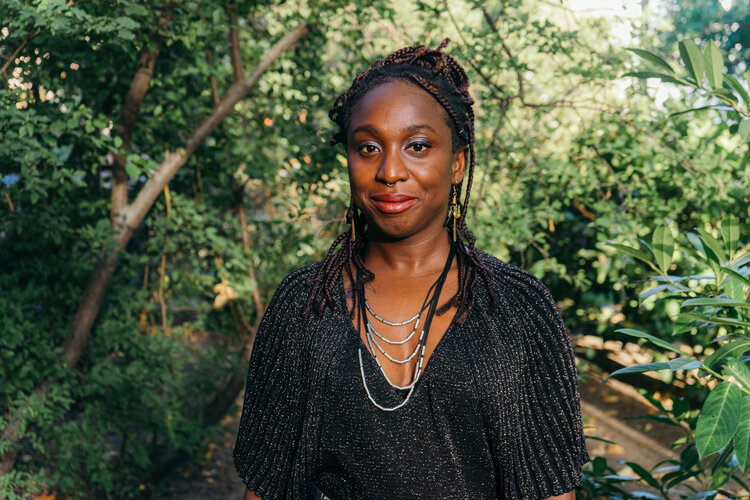 Photo by Ropa Murombo
Photo by Ropa Murombo Edna Bonhomme
Edna Bonhomme is a historian of science, writer, and interdisciplinary artist who earned a PhD in the history of science from Princeton University and a Master of Public Health from Columbia University. Working with sound, text, and archives, Bonhomme explores contagion, epidemics, and toxicity by asking: what makes people sick? Bonhomme narrates how people perceive modern plagues and how they try to escape from them through critical storytelling. As a researcher, Bonhomme answers this question by using textual archives and oral histories to unpack the variant notions of sickness and health as well as the modalities of care that shape the possibility for repair in the aftermath of colonialism and slavery. Bonhomme’s artistic language combines science studies with traditional healing elements and their current research project, “Black Health in Germany” began in 2019, collects narratives and media representation of African diasporic healing in Germany.